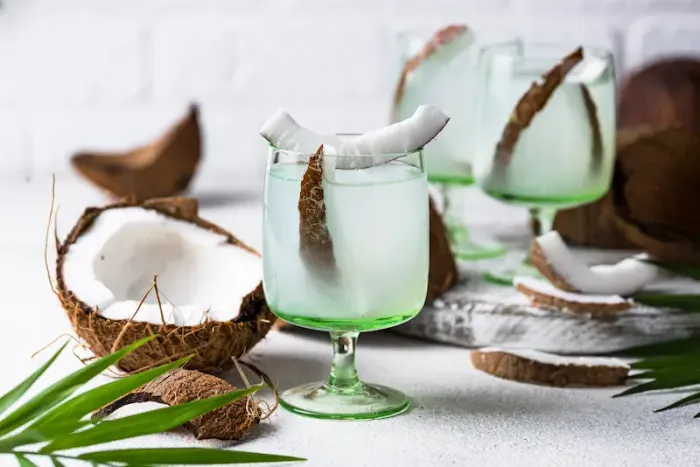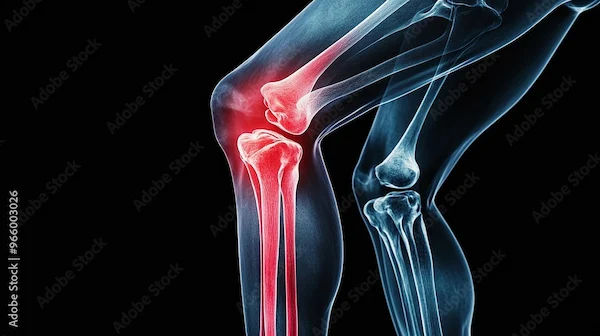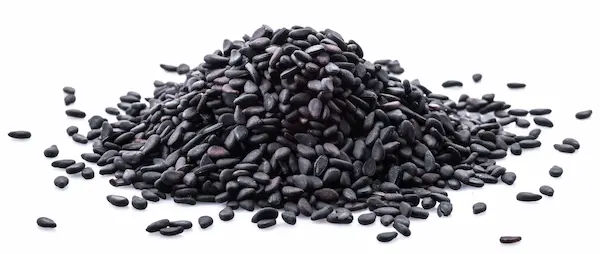Coconut Water Diet: Hydration and Wellness Guide
Explore the benefits of the coconut water diet, its role in hydration, and how it supports overall health and wellness naturally.

Written by Dr. J T Hema Pratima
Reviewed by Dr. Shaik Abdul Kalam MD (Physician)
Last updated on 13th Jan, 2026

Introduction
In the ever-evolving world of wellness trends, the coconut water diet has emerged as a popular go-to for those seeking a quick refresh and a health boost. Touted for its incredible hydrating properties and rich nutrient profile, this natural elixir is more than just a tropical treat. But is replacing meals with coconut water a sustainable path to health, or just another fleeting fad? This comprehensive guide cuts through the noise to explore the real benefits and important considerations of the coconut water diet. We'll delve into its potential advantages for weight management and overall wellness, provide a practical sample plan, and crucially, highlight the safety measures you need to know. Our goal is to show you how to harness the power of coconut water intelligently, integrating it into a balanced lifestyle for lasting health, not just a short-term fix.
What exactly is the Coconut Water Diet?
The coconut water diet is not a single, strictly defined plan but rather a category of dietary approaches that prioritise consumption of coconut water, often for a short duration. At its core, it is a type of liquid cleanse or mono-diet designed to flood the body with hydration, electrolytes, and specific nutrients while typically being very low in calories, fat, and protein.
The Core Principle: Short-Term Hydration Focus
The fundamental principle is substitution. For a period usually ranging from 1 to 7 days, participants replace some or all of their solid food meals and sugary beverages with fresh or packaged pure coconut water. The extreme version involves consuming only coconut water for a few days, which is essentially a fast. A more moderate and generally safer approach involves replacing one meal (like breakfast) or all snacks with coconut water while consuming light, whole-food meals for lunch and dinner. This short-term focus is intended to give the digestive system a break, promote rapid hydration, and initiate a calorie deficit, which can lead to quick water-weight loss.
Different Variations of the Diet Plan
You'll find several variations online:
• The Cleanse: A strict 2-3 day plan where only coconut water and plain water are consumed.
• The Meal Replacement Plan: A 5-7 day plan where two meals are replaced with coconut water, and one meal consists of lean proteins, vegetables, and complex carbs.
• The Supplement Plan: This isn't a "diet" per se but a sustainable practice of drinking a glass of coconut water daily as a health supplement alongside a normal, balanced diet. This is widely considered the healthiest way to enjoy its benefits without the risks of nutrient deficiency.
Consult a Nutritionist for the best advice
Nutritional Powerhouse: Why Coconut Water?
Coconut water’s popularity is firmly rooted in its impressive nutritional composition. It’s far more than just sweet water; it’s a natural isotonic beverage.
Key Vitamins and Minerals in Every Sip
An 8-ounce (240ml) serving of unsweetened coconut water is low in calories (about 45-60) and contains a wealth of essential nutrients. It is an excellent source of potassium, providing more than a banana, which is vital for nerve function and muscle control. It also contains magnesium, crucial for energy production and bone health, calcium, manganese, vitamin C, and riboflavin (B2). This rich micronutrient profile supports countless metabolic processes in the body, making it a nutrient-dense beverage choice.
Electrolytes: The Natural Sports Drink
This is where coconut water truly shines. Electrolytes are minerals that carry an electric charge and are essential for maintaining fluid balance, nerve signals, and muscle contractions. Coconut water is naturally rich in key electrolytes: potassium, sodium, magnesium, and calcium. This makes it a fantastic natural alternative to processed sports drinks, especially for light to moderate exercisers. It effectively rehydrates the body and replenishes electrolytes lost through sweat without the artificial colors, flavours, and high-fructose corn syrup found in many commercial options.
Potential Health Benefits Beyond Weight Management
While initial weight loss (often water weight) is a common draw, the benefits of incorporating coconut water extend much further.
Supporting Heart Health and Blood Pressure
Several studies have indicated that regular consumption of coconut water may help regulate blood pressure. The high potassium content helps counteract the effects of sodium in the diet, aiding in vasodilation (the widening of blood vessels), which can reduce blood pressure and strain on the heart.
Aiding Digestion and Kidney Function
Coconut water is a source of magnesium and other minerals that can help ease muscle tension in the digestive tract, reducing issues like bloating and constipation. Its hydrating properties are also beneficial for kidney health. Adequate hydration helps the kidneys filter waste more effectively, and some preliminary research suggests it may help prevent kidney stones by reducing crystal formation in urine. Furthermore, its natural diuretic properties help flush out toxins, supporting the body's natural detoxification processes.
A Sample 3-Day Coconut Water Diet Plan
This is a moderate sample plan focused on supplementation and light eating rather than a strict fast. It is crucial to consult a doctor or a nutritionist before starting any restrictive diet, especially if you have underlying health conditions.
Day 1: Kickstarting Hydration
• Upon Waking: 1 glass of warm water with lemon.
• Breakfast: 1 glass of pure, unsweetened coconut water.
• Mid-Morning Snack: 1 green apple.
• Lunch: A large green salad with grilled chicken breast or chickpeas (for a vegan option), with a light vinaigrette.
• Evening: 1 glass of coconut water.
• Dinner: A bowl of clear vegetable soup or steamed vegetables with a small portion of quinoa.
• Hydration: Drink plenty of water throughout the day.
Day 2: Incorporating Whole Foods
• Upon Waking: 1 glass of warm water with lemon.
• Breakfast: A green smoothie (spinach, ½ banana, almond milk, chia seeds).
• Mid-Morning Snack: 1 glass of coconut water.
• Lunch: A portion of baked salmon or tofu with a side of asparagus and sweet potato.
• Evening: 1 glass of coconut water.
• Dinner: A light lentil soup or a small portion of brown rice with stir-fried vegetables.
Day 3: Solidifying Habits
• Upon Waking: 1 glass of warm water with lemon.
• Breakfast: 1 glass of coconut water and a handful of almonds.
• Mid-Morning Snack: A pear or a few berries.
• Lunch: A whole-wheat wrap with hummus, roasted vegetables, and leafy greens.
• Evening: 1 glass of coconut water.
• Dinner: Grilled fish or a plant-based protein with a large side of roasted seasonal vegetables.
Important Notes and Modifications
• Listen to your body. If you feel dizzy, weak, or unwell, stop immediately and eat a balanced meal.
• This is not a long-term plan. Do not extend this beyond 3-5 days without professional supervision.
• Exercise should be light, such as walking or gentle yoga, during this period.
• If you have any existing kidney or heart conditions, diabetes, or are pregnant/breastfeeding, this diet is not recommended for you. For personalised advice, consult a nutritionist online with Apollo24|7 to find a plan that suits your specific health profile.
The Reality Check: Potential Side Effects and Risks
An honest discussion about the coconut water diet must include its potential downsides.
The Sugar Content Concern
While natural, coconut water contains sugars (about 6-8 grams per serving). While this is less than most fruit juices and sodas, consuming large quantities throughout the day can significantly increase your daily sugar and calorie intake, potentially hindering weight loss goals. This is why choosing unsweetened varieties is non-negotiable.
Who Should Avoid This Diet?
• People with Kidney Disorders: Its high potassium content (hyperkalaemia) can be dangerous for those whose kidneys cannot remove excess potassium from the blood.
• Diabetics: The natural sugar content can affect blood sugar levels. Monitoring is essential.
• Those with Nut Allergies: While not a tree nut, coconuts are classified as such by the FDA, and allergies can occur.
• Anyone with CYTO (Chronic Yearning for Take-Out): Jokes aside, the restrictive nature can lead to rebound overeating once the diet ends.
The most significant risk is nutrient deficiency. Coconut water is lacking in protein, healthy fats, and many essential vitamins and minerals needed for long-term health. Relying on it alone can lead to muscle loss, fatigue, and a slowed metabolism. If you experience persistent fatigue or other adverse symptoms during any diet, it's important to consult a doctor for a proper evaluation.
Choosing the Right Coconut Water: A Buyer’s Guide
Not all coconut waters are created equal. Making an informed choice is key to maximising benefits.
Fresh vs. Packaged: What’s the Difference?
Fresh coconut water, straight from a young green coconut, is the gold standard. It is pure, unprocessed, and contains the highest level of nutrients and enzymes. Packaged coconut water is a convenient alternative but is often pasteurised (heated) to extend shelf life, which can degrade some of its heat-sensitive nutrients and alter the taste slightly.
Decoding the Label: Avoiding Added Sugars
This is the most critical step. Always turn the bottle around and read the ingredients list.
• What to look for: The list should say "100% Coconut Water" or "Pure Coconut Water." Nothing else.
• What to avoid: Steer clear of any product that lists "cane sugar," "evaporated cane juice," "fruit juice concentrate," or any other sweeteners in the ingredients. Also, avoid those with artificial flavours or preservatives.
• Check the Nutrition Facts: Opt for brands with the lowest grams of sugar per serving.
Integrating Coconut Water into a Sustainable Healthy Lifestyle
Forget the short-term diet; the real win is making coconut water a smart part of your everyday routine.
As a Post-Workout Refuel
After a moderate workout, skip the sugary sports drink. A glass of coconut water perfectly replenishes lost electrolytes and hydrates you more effectively than plain water, aiding recovery without the junk.
As a Healthy Morning Beverage
Start your day with a glass of coconut water instead of a high-calorie coffee drink. It provides a gentle energy boost from its natural nutrients and sugars, hydrates you after a night's sleep, and kickstarts your metabolism in a clean way.
Conclusion
The coconut water diet, in its strictest sense, is a mixed bag. While it can offer a jumpstart to hydration and provide a short-term detox, its restrictive nature makes it unsustainable and potentially risky. The true value of coconut water isn't as a meal replacement but as a powerful nutritional supplement. Its incredible ability to hydrate, replenish electrolytes, and deliver essential vitamins and minerals makes it a superior choice over sugary drinks. By integrating a glass of pure, unsweetened coconut water into a balanced diet rich in whole foods, lean proteins, and healthy fats, you can harness its benefits safely and effectively for long-term wellness. Focus on building healthy habits that last, and let coconut water be one delicious tool in your arsenal, not the entire strategy.
Consult a Nutritionist for the best advice
Consult a Nutritionist for the best advice
Mrs Sneha P V
Nutritionist
10 Years • Master of science in Food and Nutrition
Bengaluru
Apollo Clinic, Sarjapur Road, Bengaluru

Ms. Samapti Maity
Dietician
16 Years • MSc. (Clinical Nutrition & Dietitics), NDEP, Course in Maternal Infant Young Child Nutrition.Diploma in Sports Nutrition, Diploma in Diabetic educator, FODMAP Specialist
Kolkata
BIENETRE CLINIC, Kolkata
Dr. Sasikamalam
General Practitioner
1 Years • MBBS
COIMBATORE
Apollo Sugar Clinic Coimbatore, COIMBATORE

Ms. Soma Saha
clinical nutrition
17 Years • B.Sc. - Home Science (Food & Nutrition), M.Sc. - Home Science (Food & Nutrition)
Kolkata
Dr Utsa Basu Clinic, Kolkata
(50+ Patients)
Dr Sumanth R
General Physician
2 Years • MBBS
Bengaluru
PRESTIGE SHANTHINIKETAN - SOCIETY CLINIC, Bengaluru
Consult a Nutritionist for the best advice
Mrs Sneha P V
Nutritionist
10 Years • Master of science in Food and Nutrition
Bengaluru
Apollo Clinic, Sarjapur Road, Bengaluru

Ms. Samapti Maity
Dietician
16 Years • MSc. (Clinical Nutrition & Dietitics), NDEP, Course in Maternal Infant Young Child Nutrition.Diploma in Sports Nutrition, Diploma in Diabetic educator, FODMAP Specialist
Kolkata
BIENETRE CLINIC, Kolkata
Dr. Sasikamalam
General Practitioner
1 Years • MBBS
COIMBATORE
Apollo Sugar Clinic Coimbatore, COIMBATORE

Ms. Soma Saha
clinical nutrition
17 Years • B.Sc. - Home Science (Food & Nutrition), M.Sc. - Home Science (Food & Nutrition)
Kolkata
Dr Utsa Basu Clinic, Kolkata
(50+ Patients)
Dr Sumanth R
General Physician
2 Years • MBBS
Bengaluru
PRESTIGE SHANTHINIKETAN - SOCIETY CLINIC, Bengaluru
More articles from General Medical Consultation
Frequently Asked Questions
1. Can I lose belly fat with the coconut water diet?
While you may see a quick drop in weight due to water loss and severe calorie restriction, this is not targeted belly fat loss. Any lost fat would be from overall weight loss. This approach is not effective for sustainable fat loss and the weight will likely return once you resume normal eating.
2. How much coconut water is it safe to drink in a day?
When consumed as part of a normal diet, 1-2 glasses (8-16 oz) per day is generally considered safe for most healthy adults. During a modified diet plan, intake might be higher for a short period, but this should not be maintained long-term.
3. Is it good to drink coconut water on an empty stomach?
Yes, many people find it beneficial. Drinking coconut water on an empty stomach in the morning can help hydrate the body, boost metabolism, and provide a natural source of energy and electrolytes to start the day.
4. What is the best time to drink coconut water for weight loss?
The most effective times are first thing in the morning to kickstart hydration and metabolism, or immediately after a workout to replenish electrolytes without the calories of a sugary sports drink. Avoid drinking it late at night due to its mild diuretic effect.
5. Can coconut water cause any allergies?
Although rare, coconut allergies do exist. As coconuts are classified as tree nuts, individuals with a tree nut allergy should exercise caution and consult an allergist before consuming coconut products. If you suspect a food allergy, consult a doctor online with Apollo24|7 for guidance on management and testing.




